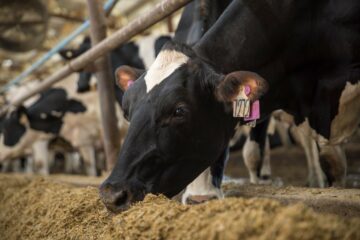Meat Eaters: 5 Things You Should Know
From scrambled eggs with cheese in the morning, to chicken breast on a lunch salad or a juicy burger or steak for dinner, animal protein has always been a part of my diet. But I know more people today who consume meat, milk and eggs have questions about how that meat gets to their tables and what the impact is on our health, the animals and our planet.
If you’re among them, I’m glad you’re curious. It’s important that we know where our food comes from and what we’re putting into our bodies. As a veterinarian and someone who has spent my life in agriculture, I’m all about being transparent and providing balanced information to help everyone make informed decisions for themselves and their families.
Besides simply loving the taste and variety of animal protein on the market today, there are so many reasons I feel good about incorporating meat, milk and eggs into an overall diet that is also rounded out by fruits, vegetables, whole grains and healthy fats.
So, why animal protein?
- It’s a powerhouse of health. It provides the protein I need for my day and other essential nutrients including iron, zinc, choline and B vitamins. Meat contains essential micro- and macronutrients not found in plant-based food.
- It’s easy. I can grab a hardboiled egg, cut a few slices of cheese for a snack, put a roast in the crockpot or throw a pork loin on the grill.
- It’s very affordable. In the U.S., we spend a relatively small portion of our income on food compared to the rest of the world, and that includes animal protein. Eggs, milk and dairy products, certain cuts of meat, or even canned meat, are very economical. And it’s simple to make those purchases go even further, incorporating animal protein into various recipes like soups, sandwiches, skillet meals and casseroles.
- It comes from farms where animals are treated with the utmost of care. Many modern farms are bigger than they used to be decades ago, which can make some people uncomfortable. But farmers today, no matter what size the farm or the type of animal protein they produce, have the same values their parents and grandparents had – understanding that respectfully caring for the animals is the right thing to do. You would be amazed at the technology used today that allows for the highest standards of animal care. As further demonstration of these standards, each species has its respective programs where farms are evaluated and routinely audited, such as the National Dairy FARM program or the Pork Quality Assurance Plus program. You may see other animal welfare certification programs on food packaging as well.
- It has a relatively low carbon footprint. Claims that we are able to eat our way out of global warming simply aren’t true. According to the S. EPA, all of agriculture contributes 10 percent of U.S. greenhouse gas (GHG) emissions. Animal agriculture contributes approximately four percent of total GHGs. U.S. farmers and ranchers are the most advanced in the world and efficiencies have led to a significantly lower carbon footprint per animal over the past 70 years. New research shows that agriculture can actually contribute to global cooling.
No matter what, protein is a must in your daily diet. If you choose to incorporate animal protein, know that it’s providing a variety of nutrients, some of which can’t be found anywhere else, and that farmers are laser focused on making sure animals are healthy and well-cared for. While the world is more attentive than ever before on sustainability, know that farmers are the original stewards of the land and no matter what size of farm, have always worked to protect the animals, land, air and water for generations to come.

